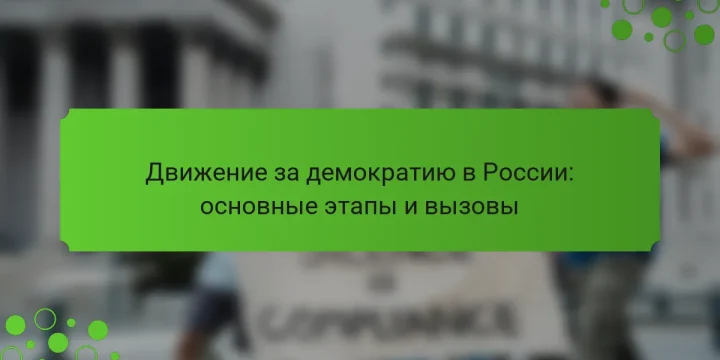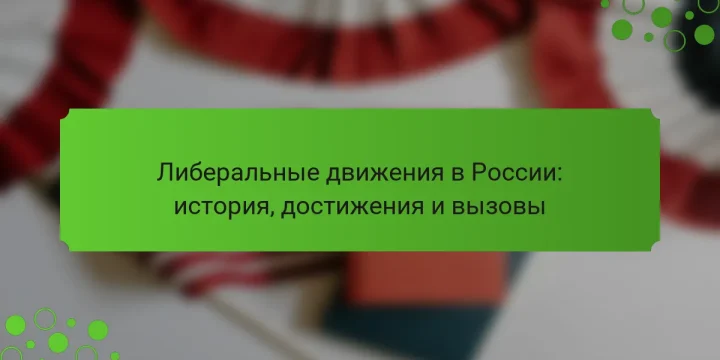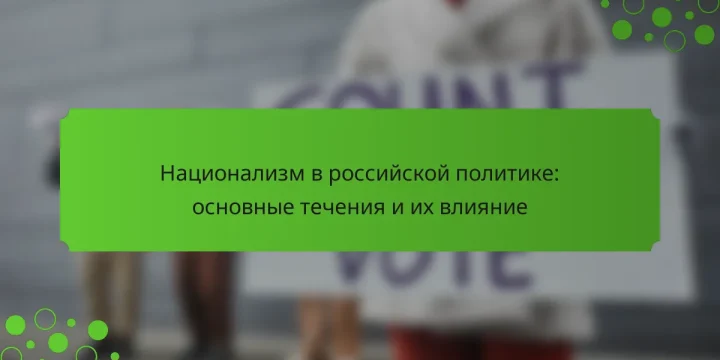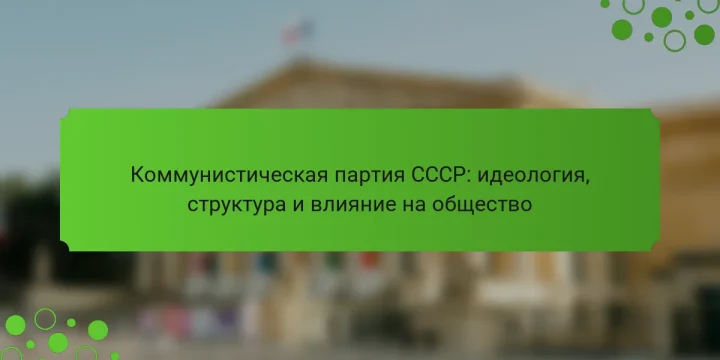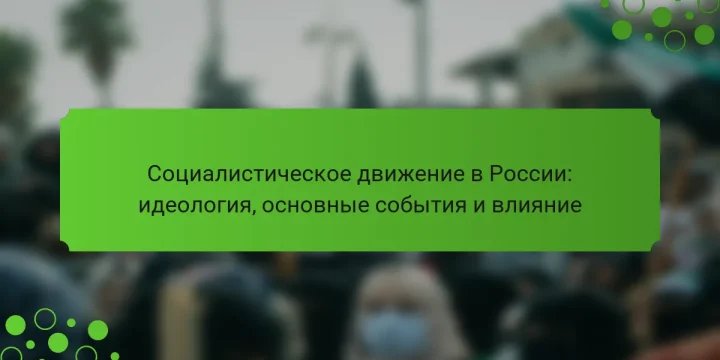
The article focuses on the Antifascist Movement in the Soviet Union, which encompassed various organizations and initiatives aimed at combating fascism from the 1930s through the post-World War II era. It outlines the movement's origins, key participants such as the Communist Party, and its significant role in promoting socialist ideals and international cooperation against fascist regimes. The article details the historical stages of the movement, including its evolution during the rise of fascism in Europe, the support for anti-fascist forces during the Spanish Civil War, and the impact of World War II on Soviet policies. Furthermore, it examines the political and social consequences of the movement, highlighting its influence on public sentiment and international relations, as well as the internal repression that accompanied its activities. Что такое антифашистское движение в…


